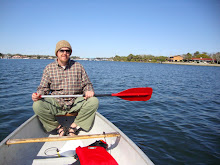As one of my favorite folk singers, Utah Phillips, likes to remind us, “the past didn’t go anywhere.” Yet an interest in the past is a relatively recent development in my life. When I was a youngster I viewed history as boring and mostly irrelevant, and my own past was something I preferred not to dwell on. Unlike many of the kids from my neighborhood, I escaped my past, or so I thought. I found a one-way ticket out of town as soon as I was able to and swore I would never look back. I thought I had left the past behind and could magically transform into a completely new life, a completely new me. I had a lot to learn.
The Job Corps offered me a way out of my home town and taught me there were many kids like me and some who had it far worse. I watched one young person after another slip back into the self-destructive patterns they had been taught their entire lives, but I also learned that not every older person harbored the same disdain and distrust to which I had grown accustomed. I could scarcely comprehend why, but there were people who seemed genuinely interested in being a positive force in our lives and believed we could make something of ourselves if only we were offered a real opportunity. Perhaps most importantly, my time in the Job Corps taught me that people can claim some degree of power over their lives if they put their collective will to the task. It seems in retrospect that lesson was much more important than I realized at the time. Once people begin to perceive a sense of agency over their lives the feeling can become addictive; for me it meant the beginnings of an improved self-assessment and a commitment to struggle against oppression which has continued to shape both my understanding of my origins and my ongoing experiences.
Consequently, the environmental and social justice struggles I have invested so much of myself in and my aspirations to become an educator and work closely with young folks who share my class background are a direct result of my lived experiences and evolving self-perception. In the nine years since leaving the Job Corps, and especially during my time at Berea College, I have learned that not only do I not have to leave the past behind, but my history is an integral part of who I am, how I see the world, and what I have to offer. As a mentor and close friend once told me, “the fact that your mom was a waitress is not parenthetical.”
Just as personal discovery can shed new light on one’s origin, the study of history also offers fresh perspectives on unexamined social dogma. The history many science students receive, for instance, under-emphasizes how scientific communities operate and the often circuitous path knowledge takes to arrive at its present position. As a result, students fail to understand the myriad ways ideology is injected into scientific processes and take for granted the supposed objectivity of scientific knowledge. As I survey the world unfolding around me, I am constantly reminded of dystopian novels such as Fahrenheit 451 and Brave New World in which science was used to enslave rather than to liberate. I am increasingly concerned that unless we cultivate a deeper understanding of how science operates, scientific progress is unlikely to bring us any closer to the sort of world we would like to inhabit and may do the opposite.
These days I am growing increasingly enamored with the past. Whether it is the sense of lasting camaraderie which results from exchanging personal stories with other working class young folks or the use of historical research as a means of illuminating the nature of science, I find that history makes the present come alive in ways I never knew it could. Consequently, I am becoming a bit of an exorcist—dragging long-hidden and at times malevolent apparitions into the light of day and forcing them to justify their existence or be banished. I am learning that our past is comprised of more than painful secrets which must be kept hidden; rather, it is an opportunity to let down our defenses and see the world, and one another, with new eyes.


No comments:
Post a Comment